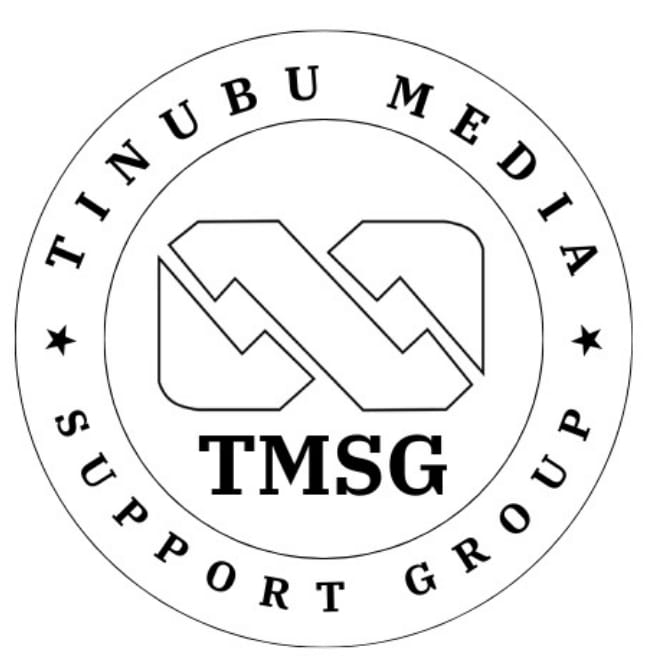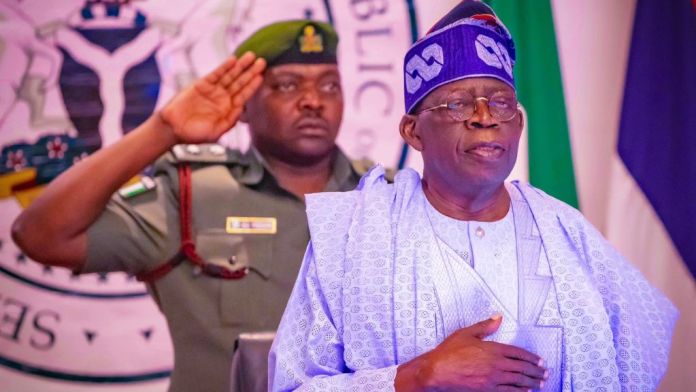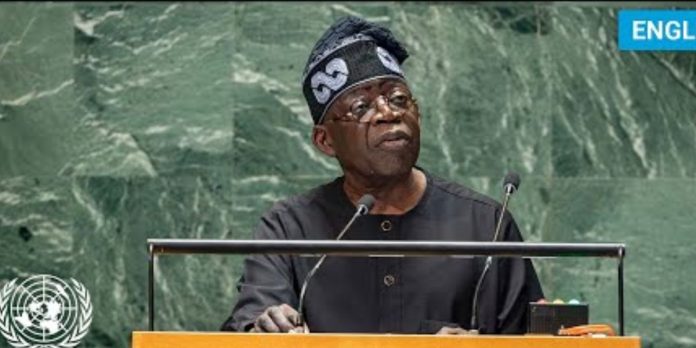The National Human Rights Commission NHRC said the Human Rights Situation Dashboard which was launched in January 2024, has now become a central tool in tracking and analysing the state of human rights in Nigeria.
Reflecting on progress made so,the commission said it also compelled to confront the challenges that persist, with a clear commitment to advocate for justice, dignity, and the fundamental freedoms of all Nigerians.
The Executive Secretary, National Human Rights Commission NHRC,Dr.Tony Ojukwu disclosed this at the presentation of the October edition of NHRC Human Rights Situation Dashboard.
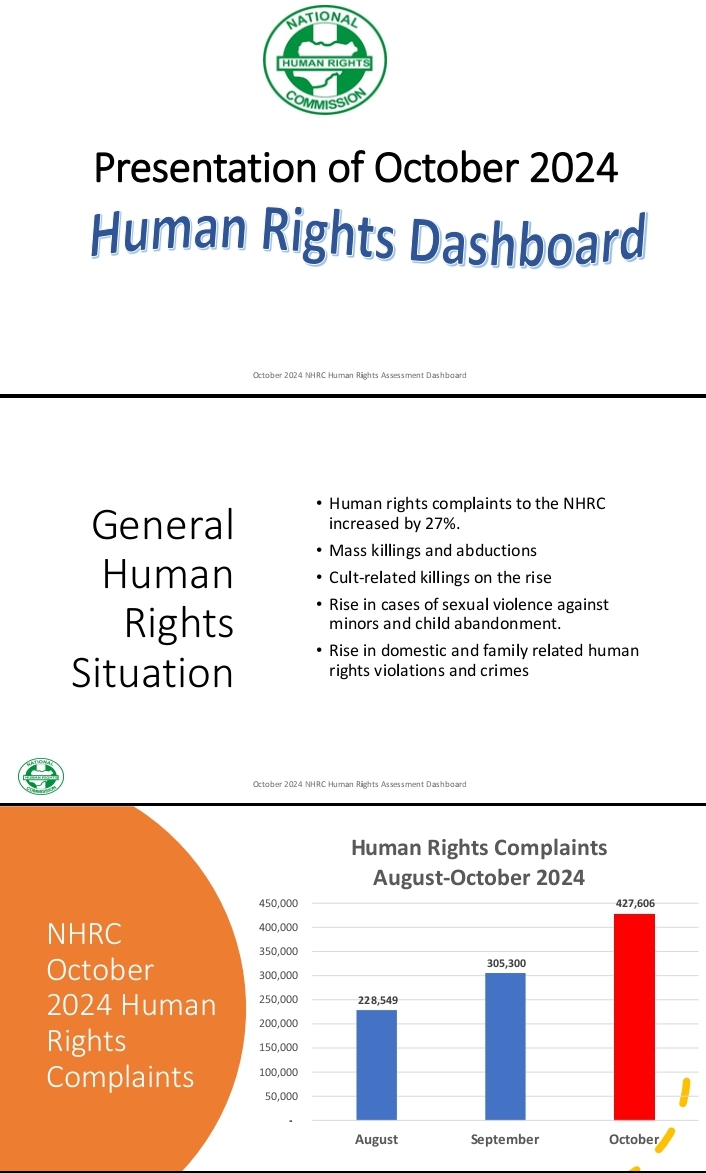
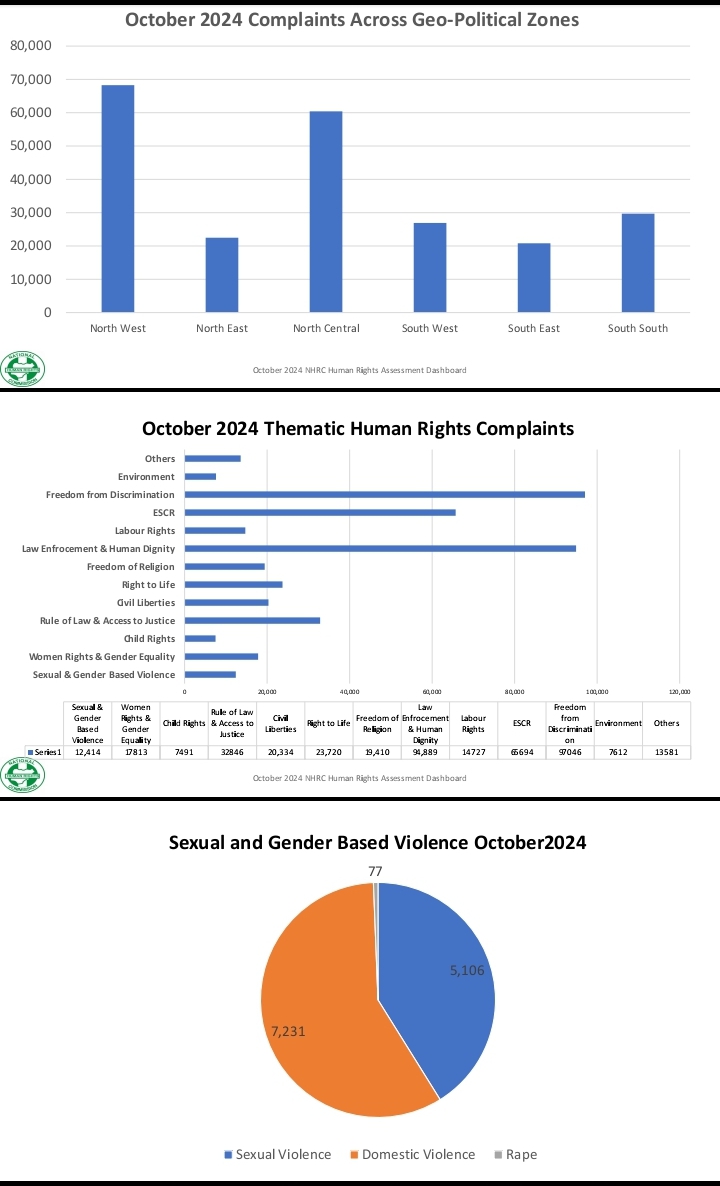
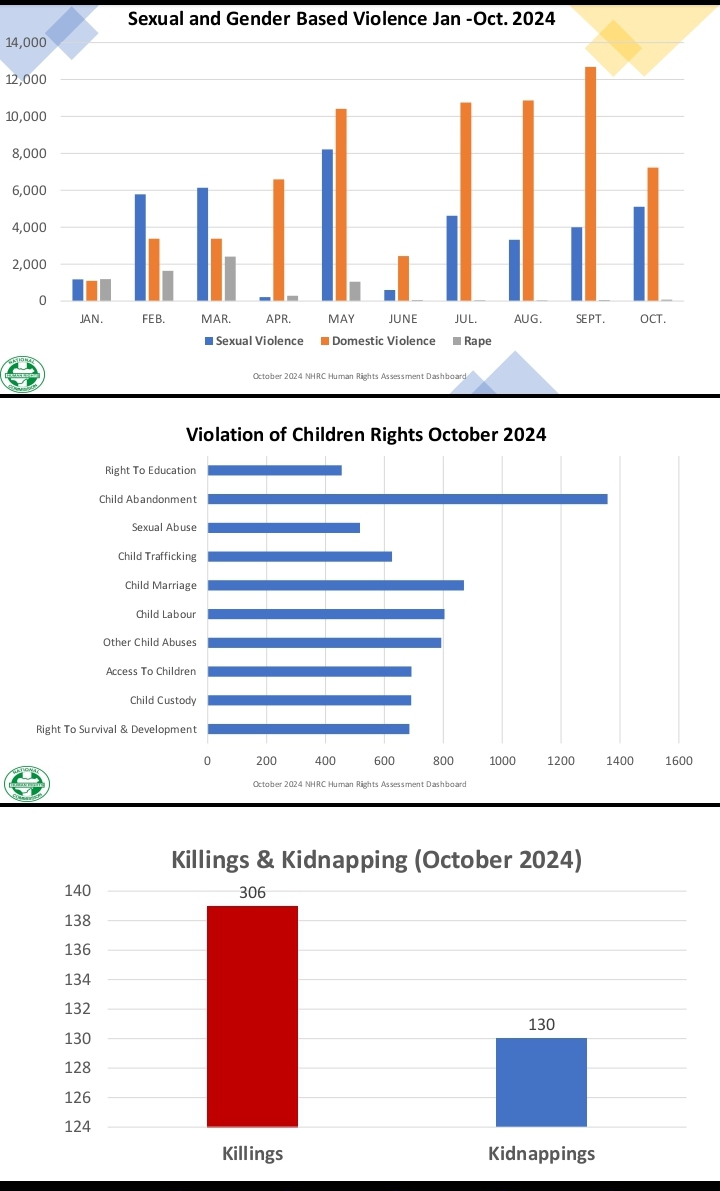
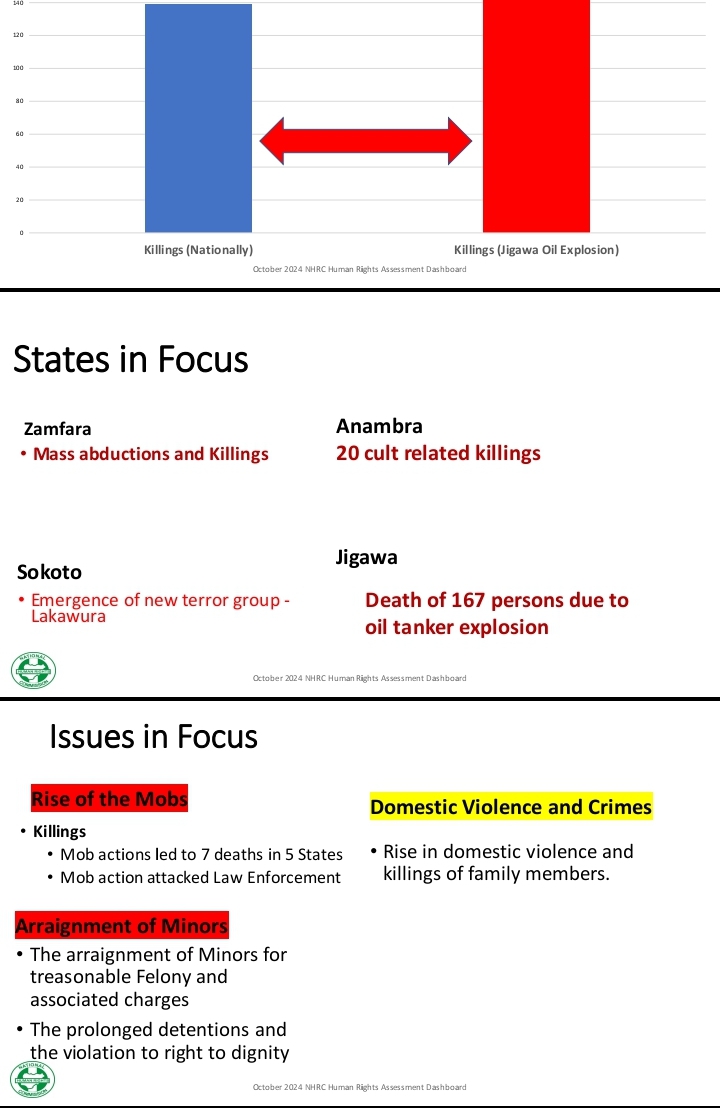
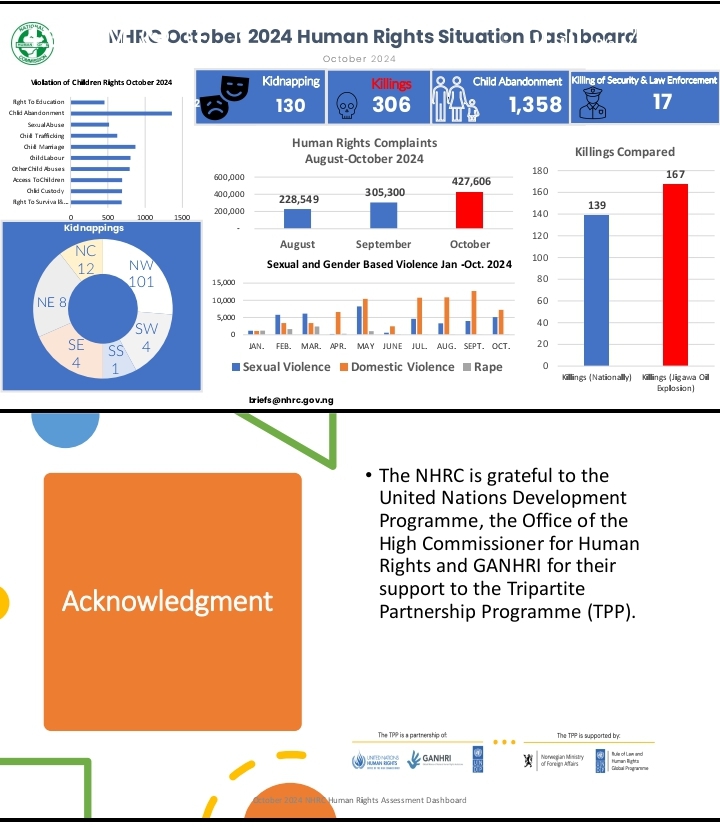
Ojukwu said “The dashboard is not merely a collection of data; it is a call to action and a powerful tool for advocacy. Each number represents the voice of a citizen, each statistic points to a broader story of rights, violations, and the urgent need for accountability. Through this monthly process, we have consistently provided a comprehensive overview of human rights concerns, detailing complaints received from across the country, as well as tracked incidents of human rights violations. By doing so, we aim to offer a vital resource to all those working to advance human rights in Nigeria.
“We have seen how our findings have not only captured the attention of stakeholders but have also triggered meaningful discussions and actions on pressing human rights issues. As we continue to expand this initiative, we remain resolute in our mission to chart the way forward for Nigeria’s human rights landscape”.
NHRC Human Rights Situation Dashboard, presented by the Senior Special Adviser to Executive Secretary, Hillary Ogbonna, indicated that;in October, the Commission received 427,606 complaints from its 38 offices nationwide,with the freedom from discrimination top the list.
“While this is a significant increase from previous months, it also signals an undeniable pattern of systemic human rights violations across the country. One of the most notable trends this month is the widespread abuse of freedom from discrimination, which emerged as the most frequently reported violation. This disturbing trend speaks to the deep-rooted inequalities and prejudices that continue to plague our society. The challenge then, is not just to acknowledge this issue but to take decisive action to dismantle these barriers and ensure equal treatment for all Nigerians, regardless of background, ethnicity, religion, or status.
“At the same time, we must confront other ongoing and emerging issues with the same urgency. The recent arraignment of minors in connection with the ENDBADGOVERNANCE protests has brought to light serious concerns about the criminalization of voices of dissent and the repression of human rights defenders in Nigeria. These actions are not isolated incidents; they are part of a broader pattern of shrinking civic space and increasing state repression against those who dare to challenge the status quo. The minors’ arrests, particularly, underscore the vulnerability of young people in the context of a fragile democracy, and the critical need to ensure their rights are protected. It also questions the fearless participation of citizens in national development.
“In a positive development, just yesterday we facilitated a Civil Society Consultation on the State of Human Rights, in partnership with the European Union Delegation to Nigeria. During this consultation, we inaugurated a Human Rights Defenders Forum which will serve as a platform for dialogue, support, and collaboration. Today, we are continuing in the process of creating effective human rights mechanisms by inaugurating the Working Group on Human Rights and Civic Space. This working group will strengthen our engagement with civil society leaders to amplify voices to protect civic space. It is a genuine recognition of the role of civil society as a critical sector for the consolidation of our democracy.
“The dashboard has not only provided a clear-eyed view of the challenges we face, but it has also highlighted the invaluable role of civil society, the media, and other stakeholders in holding power to account. The increase in the number of complaints received each month, along with the continued engagement of diverse groups, signals a growing recognition that human rights are not negotiable. It also demonstrates the power of informed action.
“As we reflect on these developments, I would like to take a moment to thank all of our partners, stakeholders, and civil society organizations that continue to work with us in the pursuit of human dignity, justice, and equality. We value your contributions and look forward to deepening our collaboration.
“I want to recognise the contributions of our partners, the United Nations Development Program, the Office of the High Commissioner for Human Rights, the Government of Norway and the Global Alliance for NHRIs, supporters of the Tripartite Partnerships to supports National Human Rights Institutions. The TPP program has recently seen us support NHRC offices and the Governments of Katsina and Borno in implementing key human rights mechanisms”.
Dr Ojukwu therefore called on all participants at the event to critical review the data emanating from the month of October report, continue to work together across sectors, across communities, and across all levels of government to uphold the rights of all Nigerians.
“Let this dashboard be more than a reflection of our present state; let it be the spark that ignites lasting change for the future of our nation”he added.



